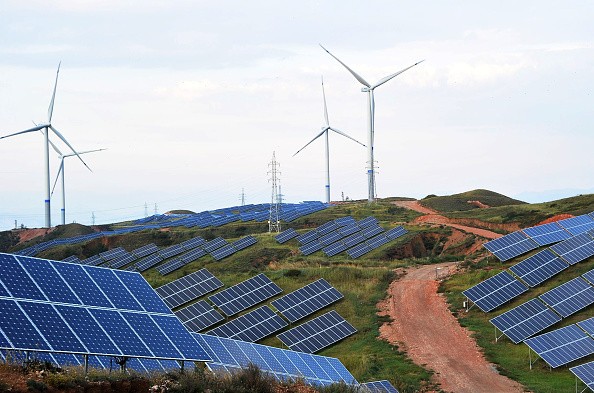According to Dutch bank ING, three of Asia's major economies would spend an estimated $12 trillion to achieve net-zero carbon emissions in their transportation businesses.
The bank reported that China, Japan, and South Korea account for about two-thirds of all carbon dioxide emissions in Asia-Pacific and about one-third of worldwide emissions.
Japan and South Korea's Commitment

Japan and South Korea have committed to achieving net-zero carbon emissions by 2050, whereas China has committed so by 2060. To achieve net-zero emissions, more greenhouse gases must be removed from the environment than are generated.
According to Robert Carnell, Asia-Pacific director of research at ING and the report's author, the $12.4 trillion cost estimate is "equal to more than 90% of China's 2020 GDP."
Energy-Producing Capacity

He said it would cover the energy-producing capacity required by governments to provide new fleets of battery electric cars, electrified rail, hydrogen-powered trucks, sustainable aviation-fueled planes, and ammonia-burning ships.
He pointed out that the $12.4 trillion figure does not include infrastructure investment to replace existing car fleets, build electric vehicle charging stations, or store new fuels.
According to ING, with the transportation systems of the three nations accounting for up to 30% of total energy consumption, they will need to move quickly and implement sustainable solutions to meet their targets.
Related Article : 'Cut Carbon Emissions,' 300 Companies Urge President Biden
Estimated Cost
The cost of achieving net-zero carbon emissions in transportation will be reasonable if China, Japan, and South Korea begin their energy transformation process now and spread out their efforts over the next 30-40 years, according to the bank.
China is the world's largest emitter of carbon dioxide, and attaining net-zero emissions will cost the country $11 trillion - or "1.8 percent of GDP per year through 2060," according to the research.
According to the 2020 China Renewable Energy Outlook, passenger automobile transportation in China would more than quadruple to 450 million cars by 2050, up from 220 million in 2018.
China has experienced a tremendous expansion in the electric car area, and according to ING, if the country ultimately adopts battery plug-in electric vehicles by 2060, overall energy consumption from passenger vehicles may be considerably reduced by 2050.
According to ING, China's maritime industry would require the most investment to reach net-zero carbon, with demand for sea freight expected to increase to approximately 120 percent of current levels by 2060.
The Price of Carbon Neutrality

However, achieving carbon neutrality would be difficult without replacing diesel and liquefied natural gas with green ammonia, resulting in a $3.7 billion cost increase and an additional 433 gigawatts of power-producing capacity.
Both Japan and South Korea have chosen the year 2050 as their target for achieving carbon neutrality.
According to ING, transitioning to a net-zero plan for Japan's transportation sector will cost $1 trillion in necessary power-producing capacity. This amounts to "roughly 20% of current Japanese GDP," but it might drop to "0.6% GDP per annum" if stretched out between now and 2050.
Japan has made little headway in decarbonizing its economy, according to the study, with fossil fuels accounting for more than two-thirds of the country's primary energy source. However, in an optimistic view, this indicates that "Japan has much low-hanging fruit to harvest in the transformation process, promising quick progress."
According to ING, the entire green energy capacity expenditures for converting South Korea's transportation industry to a net-zero carbon future will cost about $400 billion over the next 30 years, or 0.6 percent of current GDP.
Although the costs of changing countries' transportation networks might be "immensely dismal," it's crucial to realize that "all of this expenditure will show up as GDP," according to Carnell.
For more news update about Environmental Action, don't forget to follow Nature World News!
© 2025 NatureWorldNews.com All rights reserved. Do not reproduce without permission.





